A Return to Reverence Part I-Teaching Your Children
Start Them Early
It’s impossible to separate our bodies, minds and spirits, because they’re connected. We must teach our children and grandchildren that as a whole being and Child of God, we must respect all parts of ourselves.
They need to learn that when one part feels ‘bad,’ it makes the other parts feel ‘bad’ too.
When our Spirits inhabit our bodies at birth we become ‘whole living beings.’ They give us life, and our bodies are the earthly ‘temples’ where they dwell. If we don’t take care of our bodies, or allow corrupt things into our minds and our bodies, it hurts our spirits.
Our spirits are pure when they come here from a perfect heavenly place, and are very sensitive to anything ‘bad.’ When we allow bad influences to stay with us, our spirits become dull and lose their perfectness. They can’t function and listen to the Holy Ghost’s promptings, and we’re not as loving or kind as we should be.
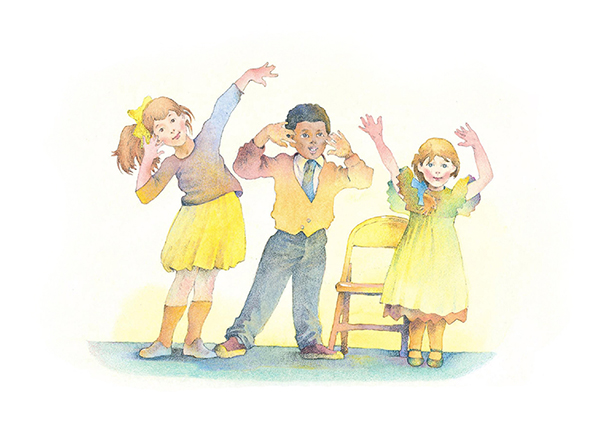
1. Teaching reverence for self and others
Our Bodies:
Children should be taught that our bodies are a gift to use for this life time and the next — We can enjoy using our bodies on earth; we can be resurrected; and if we live worthily, return to our Heavenly Father.
If we care for our bodies, they will serve us throughout our lives. The youngest child can be taught that good food makes our bodies strong, and sleep and exercise help our bodies grow. Keeping our bodies clean will help us stay healthy and feel good.
As children grow they become curious about their bodies, discovering new things daily about how their bodies work. Parents feel delight in the discoveries their baby makes while learning to blow bubbles, make new sounds, and begin controlling movement of hands and fingers— finally grasping objects.
Learning doesn’t stop there.
Children challenge themselves to find their limits; others’ too! As parents, it’s our duty to allow them to explore and grow within boundaries of safety, obedience and respect. As we teach these principles, we need to do more by example, than by simply saying so.
Safety and obedience go hand in hand in learning that natures’ laws are for our own good.
Case in point: when one climbs something, you must come back down! Whether up a tree, the shelves in grandma’s pantry, or the rock wall and on the playground. With growth, self-confidence pushes the boundaries of safety and obedience. When a child is told to stay within certain bounds, and doesn’t, sooner or later the consequences of choices will teach him lessons he needs to learn. Obedience is better than hurting.
Of course, there’s always the child for whom this lesson must be repeated again and again. We love them anyway. The Lord does too!
Teaching our children to have reverence for their bodies should not be left up to the public education system. Although adequate programs are available, they shouldn’t be the sole source of educating our children about their bodies, minds or spirits. Schools can’t teach them to value the sacred nature and Lord’s gift of our bodies.
It’s in Doctrine and Covenants section 93:40 that this principle is taught. We lived as spirits with our Heavenly Father, and the elements that comprise our bodies are eternal. It’s a commandment and our responsibility to teach this principle to our children.
We set the boundaries and limitations for our children and teach them to respect and have reverence for their bodies. Don’t be afraid to tell your child—NO. Learning the word no; helps her govern herself. It’s called self-discipline.
When we discipline, we simply teach our children to become followers of Christ — one of His disciples. It’s not punishment.
A few suggestions for teaching young children that take time, but pay big dividends later are,
- How to choose and eat good foods and get enough sleep. Allow them to help with meal preparation and shopping; to understand and appreciate the variety God has provided for our benefit.
- How to work by making beds, and cleaning their rooms. To care for clothes and belongings by putting them in proper places. Let them help with laundry; a toddler of 2 or 3 can play ‘fold a washcloth’ and the ‘matching socks’ game.
- To exercise. Limit your child’s time in front of the television, computer, electronic games and toys. They’re wonderful things, but healthy bodies are the best tools we can ever have.
- Teach them to notice things: to use their ears, eyes, and senses of smell and touch. The Lord gave us our senses to enjoy all of earth’s beauty.
- Show your child how to dress and cover their bodies modestly and appropriately. Certain clothing is for certain occasions. Beachwear is not appropriate for church. Teach them to take care of their special Sunday clothes.
- Above all, teach your child to respect the privacy and modesty of their own bodies and that of another’s. Teach them that some touches are appropriate—others are not. One simple directive is this: If it’s covered by a swimsuit—it’s private!
How you treat your body, how you dress or talk about it and of others’ bodies, are important ways to teach your child to show respect.
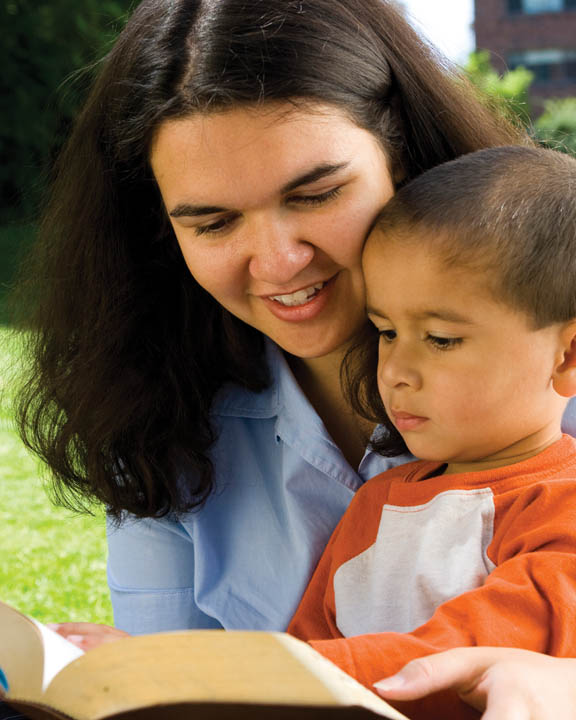
Our Minds:
Reverence for our minds is an extension of reverence for our bodies. What we put into our minds, is as important as what we put into our mouths. Teach your children that what we see, hear, taste, and touch and experience, is stored and remembered in our minds.
Limiting exposure to profanity, vulgarity, nudity and sexual situations so available with every form of media, should be of primary concern to parents. If we view movies, television, games and listen to music as a family, we have positive influences upon our youngsters’ minds as they grow and develop.
When we choose only the best media, we can keep the door to the ‘wolf of pornography’ from opening as often. Pornography is the most prevalent addiction today. It’s impossible to hide our children away or protect them from every thing they will see, hear or experience; but we can teach them what is appropriate.
If we teach them what is okay, when they find themselves in uncomfortable situations, they’re more likely to respond appropriately. It’s the first step to listening to the Holy Spirit’s guidance.
The following are suggestions for teaching children how to ‘feed their minds’:
- Learn Primary songs to hum or sing when experiencing negative feelings like; fear, sadness, anger, or temptation; or when in uncomfortable situations or places.
- Memorize quotes, poems, songs or scriptures that help us remember to choose good forms of entertainment.
- After viewing movies or TV shows, talk about how it made your child feel. Help them recognize and label their feelings: good and bad.
- Set aside reading time daily. Choose good books and poetry in addition to scriptures. Read with your children.
- Listen to a variety of good music. Play it in the background during the day. Turn off the TV, especially at meal times.
- Talk to your children. Teach them the art of communication—FACE to FACE; and how to LISTEN. Listen to them. Turn off phones, I Pads, and electronic distractions for awhile each day. Experience quiet and peace.
- Begin scripture study or scripture story time when children are small.
- Don’t forget to teach them how to pray using the correct language!
Again, you are the best example of filling your mind with only the best literature, music, drama and other media. Children listen to every conversation you have. They learn BAD words even quicker than good! Including how you speak about others.
Our Spirits:
Our spirits control our bodies and our minds. The sooner you teach your child this, the sooner he will begin governing himself through self-control and agency. They’ll be quicker to respond positively to both correction and direction when given. When teaching them to ‘love ourselves as our neighbor,’ they will:
- Understand that the Lord created us as unique individuals.
- Tolerate differences, even if others feel, see, hear and do things in different ways.
- Appreciate the good differences in others.
Our bodies and minds are different, but our spirits all come from our Heavenly Father. Learning to reverence all the parts of ourselves as a ‘whole being’ is the beginning of respect for self and others in Returning to Reverence, so we will be prepared to meet our Savior when He comes.
2. Learning Reverence at Home:
Teaching children to respect their bodies and their surroundings begins at home. If respect and reverence aren’t learned at home, they won’t be shown anywhere or towards anyone else. Simple courtesy words at home like please, thank-you, yes Sir and yes Ma’am, help to build a basis for good manners in public. Begin with table manners, then phone and door manners.
Use them yourself; children mimic both good and bad, as many an unfortunate, embarrassed parent has found out, when a child blurted out a foul word they’ve heard a parent use.
If a child can pick an object up, take it off a shelf or out of a box, she’s old enough to put it back! Make games of simple tasks like:
- Putting away toys
- Folding and putting away laundry
- Setting the table
- Emptying garbage cans.
- Dusting tables, chairs and shelves
- Making their own beds
Chores won’t be drudgery, because children actually like helping! They’ll feel good about themselves.
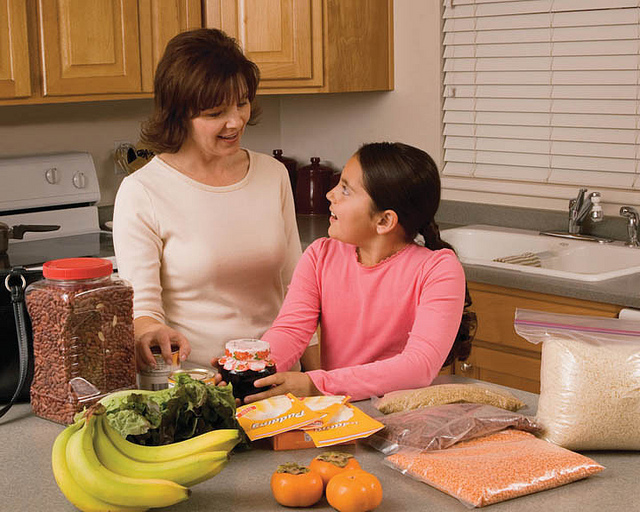
Don’t take away opportunities for learning and gaining self confidence by doing everything for them, because it’s easier to do it yourself, or it might look nicer. That’s the perfect way to create little demanding, selfish individuals, who grow up to be big, demanding, selfish individuals!
Children learn by doing; it helps them academically and for further learning to take place. Don’t cripple your child for life by not teaching them to care for their home. Learning to care for the home they live in will transfer to care and reverence for other places as well.
School and other Places of Learning:
Respect for school, other places of learning, teachers, school workers, and administrators begins at home. School isn’t a big deal if a child has experienced routines, learned to follow simple instructions and developed a few good manners. If they have learned to respect family members, they will show respect to teachers, peers and others.
Children love learning.
When they’ve done well—praise and encouragement go further than words of ridicule or criticism. When children feel good about themselves, and receive praise for doing their best, they try even harder. Learning becomes exciting.
In the Pearl of Great Price we read in Moses6:6 that Adam and Eve taught their children ‘to read and write, having a language which was pure and undefiled.’
What a home school that must have been! We should prepare our children for worldly experiences no matter where they may go and what level of education they aspire to. A few suggestions for successful learning experiences are,
- Read with your child all year long.
- Find educational experiences to show that learning isn’t always in a formal setting or place.
- Provide a central quiet location for homework, without distractions, where they can seek help and encouragement.
- Expect them to do the best they can, as neatly as they can. Reward them, but don’t buy good grades. They need to learn to do a good job for the sake of doing a good job and for self-respect.
- Show respect for your child’s teacher, even if you don’t agree with classroom policy or strategies implemented to help your child.
- Be involved in your child’s education, and show support for the school’s administration and other employees.
- Your attitude and example matter, if you want your child to have respect and reverence for learning, the places they learn in and those they learn from.
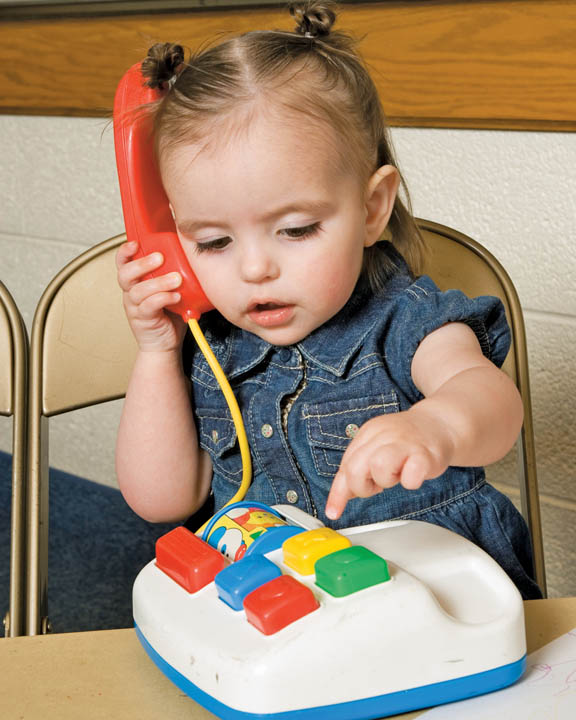
Social Situations:
Extended family members’ or friends’ houses may be the first social experiences your child has; even before church or school. It’s the perfect time to ‘practice’ manners. Family and friends are more tolerant of lapses and social faux pas. It’s also the time to teach them to respect others’ belongings; they can’t have everything they want.
Family Home Evening is a great time and place to practice role playing social situations. Extend what was taught in F.H.E. during the week by:
- Teaching your child manners.
- Doing homework and chores without being asked.
- Speaking politely, using inside voices when indoors and in the car, and outside voices when out of doors.
- Being extra nice or helping another family member!
Social learning starts at home. When attitudes of respect and reverence are taught at home, they will carry into social situations.
Chapter 5 of 1 Timothy charges the saints in the apostle Paul’s day, to show respect for elder family members. Respect for parents and extended family members should be learned and shown at home—FIRST!
3. Reverence for Sacred Places:
The phrase ‘Fear of God‘, means Respect and Reverence for God. It is first and foremost the attitude we need to teach about our Lord and Savior and His house. We go there to learn of Him, His ways and His teachings. We show reverence when we attend church meetings on Sundays or during the week.
Reverence can be simply taught during prayer time, scripture study, Family Home Evening, and as we watch the General Sessions of Conference together as a family.
Sunday mornings need not be chaotic if we adopt an attitude of preparation. Children can be taught that the Sabbath is a special day when they have the opportunity to prepare themselves in cleanliness, dress clothes and gathering scriptures. And, for little ones—a Sunday only bag with quiet gospel relevant toys, and books to help them remain reverent during Sacrament Meeting.
Have your children participate in the selection of gospel oriented toys and books, and keep them for Sunday’s only. Making them special promotes an attitude of reverence. They learn the difference between the everyday ordinary and the Sabbath, and to keep the Sabbath Day Holy.
Playing Hymns and Primary songs during the week, with scripture study and F.H.E. teaches the importance of reverent music in our lives and how the Holy Spirit influences us for good, where ever we may be or what ever situation we find ourselves in.
There have been many times when hymns or Primary songs have helped someone make choices in crisis or spiritual peril.
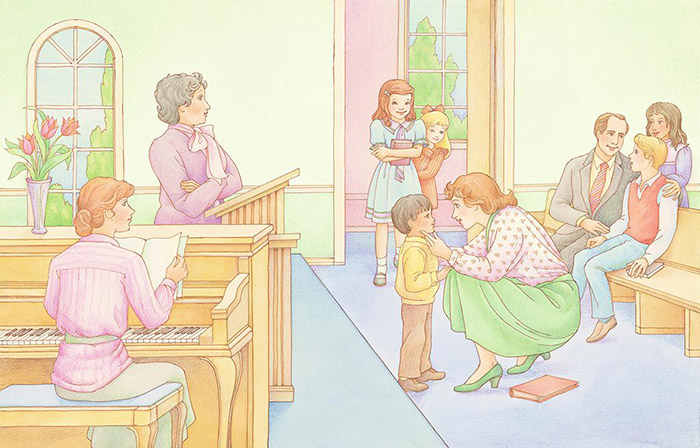
In Primary and Sunday School:
Primary and Sunday school classes aren’t ‘playtime.’ Leaders and teachers recognize and prepare lessons and sharing times for active little bodies and minds. We need to help our children remember that it is the Lord’s House by showing reverence.
Parents should support the Primary Leaders and Teachers who teach children about the Savior and His Gospel. If your child needs extra help to learn respect and reverence, do what ever is needed to help them learn. Never be embarrassed or take offence, if you must go sit with your disruptive child.
Remember, He is struggling to learn a principle of the Gospel. Christ didn’t give up on those He taught, He showed them the way with patience. He is applying the principle of ‘long suffering’ along with all of us.
For the Sacrament and Sacrament Meeting and the Scriptures:
Our homes are the best places to practice sitting quietly for a meeting like Sacrament. Good times for practice are:
- Meal times.
- Scripture study and reading time.
- General Conference talks.
- Tabernacle Choir broadcasts and special programs.
- Family Home Evening.
Start with a few minutes at a time during daily scripture study or reading time. Reward and praise your child’s efforts. Lengthen the time little by little, it takes lots of practice and patience! Begin with only one verse, then two—then three.
It doesn’t matter how many or how long it takes; if we are consistent, the Holy Spirit will help us teach.
Reading the scriptures and teaching love and respect for them is a process which takes years. You may not see results soon; learning is for our whole lives.
It’s our responsibility to help our youngest children learn to be quiet during sacred meetings. Children’s inherent nature means they’re controlled by physical needs and changing emotions minute by minute. They get hungry, tired, cranky and bored. Parents who quickly take their noisy, crying children out of the chapel, and lovingly help them settle and regain composure, without running the halls are to be commended.
The Lord’s church is for families: that’s why our children are with us during meetings. It’s also a place for learning.
Learning can be noisy when church schedules don’t match up with little natural body clocks. It’s fact; but children can learn what is expected of them, if we consistently show them how to behave in a firm loving way.
Here’s a few suggestions to try during difficult moments:
- Firmly hold your child, look into their eyes, tell them it’s time to be reverent and quiet. Get their attention!
- When children refuse to settle and can’t be distracted with quiet toys, books or by holding them; take them to the foyer.
- Walk with them until their energy levels and emotions settle; don’t let them run unattended in the church. This teaches them to be quiet and reverent in the Lord’s House.
- Get them a drink, sit with them, talk to them quietly.
- Hum primary tunes or hymns softly, while holding them. It’s no different than home—settling them for bedtime. It’s time to be quiet.
- Always return to Sacrament meeting, when they are quiet and in control. This teaches the importance of being with family for worship.
- If a special ‘Sunday only bag’ works for your family, wait until after the Sacrament is passed and served, before allowing children to take one toy or book out at a time. This teaches the importance of sacred music and partaking of the Sacrament.
We learn at different paces. Some principles come quicker and easier and some of us struggle for our entire lives. It’s okay.
Christ loves us anyway.
We need to love ourselves and our children enough to continue that learning process.
For the Lord’s Houses—the Church and the Temple:
Home must be one of the most Holy places we have, and the most Holy places on earth are the most sacred.
When we aspire to go to these places, and take our children, we need to prepare them for the experience. We practice for going to the temple by attending church meetings weekly.
WE must teach our children the Temple’s importance by:
- Letting your child know when you are going to the Temple.
- Tell them how much you enjoy attending.
- Show them your recommend, tell them you don’t take your recommend for granted, it takes a lot of hard work to be worthy of one.
- Show respect for the temple garment and the sacredness of it.
- Take them to the Temple grounds for a special Family Home Evening.
Other suggestions: walk through the Temple grounds and have them practice walking quietly along the beautiful walkways and around flower beds. Sit on the lawn and look at the building while you teach them about the eternal aspects of families, Jesus Christ, love, respect and reverence.
Hang pictures in prominent locations of your home and in your child’s room of temples.
The time is now to show, teach and prepare our children for our Lord and Savior’s coming; by Returning to Reverence.
‘Train up a child in the way he should go: and when he is old, he will not depart from it.” Proverbs 22:6


